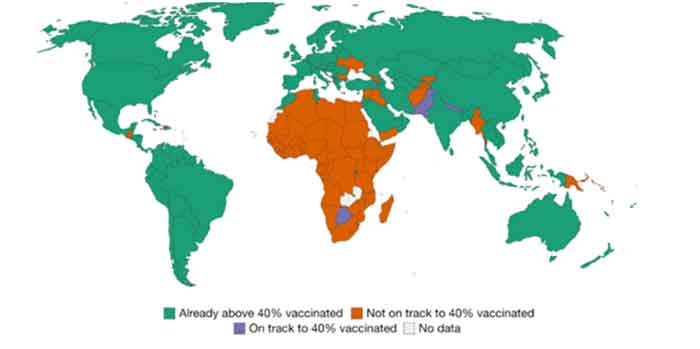
In the messy, underhanded world of global health responses to COVID-19 it was only appropriate that lawyers should find themselves enriched on respective sides of a dispute about vaccine supply. The pharmaceutical giant AstraZeneca has been getting a good deal of bad press, with its COVID vaccines seen to be a riskier proposition, notably to younger adults, than those of its rivals. But the matter of rare blood clotting was less a bother to one of the company’s main customers – the European Union – than its failure to be timely and forthcoming with the number of contracted doses.
In January, AstraZeneca announced that it would not be able to deliver the promised doses on time as outlined in their August 2020 contact with the EU. On March 19, with no discernable change, the European Commission commenced a dispute resolution process with the company. As the Commission explained, the company’s failure “to develop a credible strategy to ensure compliance with its contractual commitment” left it “no other choice than to start legal proceedings.”
First came the application for an emergency injunction to convince the court that the deliveries be made to the countries in need as a matter of urgency. The second part of the legal process entailed the Commission’s pursuit of the case on its merits in terms of mutual rights and obligations as understood by the contract.
AstraZeneca, for its part, submitted that it had fully complied in its agreement with the EU, arguing that it was only obliged to make “reasonable best efforts” to meet EU orders. As with all such efforts, some run afoul of logistics and planning. Supply problems could be explained by tardy vaccine production at the company plant in Belgium. While AstraZeneca accepted the point that the agreement permitted the option of supplying the bloc from UK sites, this would only be done once the UK had adequate supplies.
Depending on how you look at it, both sides could limp away with some consolation from the June 18 ruling of the Belgian court of first instance. The Brussels-based institution ordered AstraZeneca to deliver 80.2 million doses over a number of dates till September 27. The doses are to come in a series of instalments, with 30 million of them already delivered at the end of the first quarter of 2021. 15 million is slated for delivery by July 26; 20 million by August 23; and 15 million by September 27. Failing to do so would lead the company to incur €10 per undelivered dose per day.
The Commission was blunt in reviewing the court’s ruling. “AstraZeneca grossly and intentionally breached the agreement with the EU.” Commission President Ursula von der Leyen claimed it showed “clear recognition that our Advance Purchase Agreements have a sound legal basis.” Such a view papered over the Commission’s lamentable negotiating efforts with AstraZeneca which had led to granting the company substantive legroom in discharging its obligations in the first place.
The Commission was triumphant in quoting the court’s ruling that “primate facie, the delays of the vaccination may have damaging consequences on individual freedoms of the EU citizens and, as a consequence, on the economic life of the EU and Member States.” It followed that this was “sufficiently serious to justify an immediate decision on the number of doses of vaccine that AstraZeneca had to deliver to the EU”.
The judgment also found that AstraZeneca had breached the agreement by “intentionally [choosing] not to use the means at its disposal to manufacture and deliver the vaccines”. In prioritising the UK over the EU, the company “apparently – deliberately breached its contractual warranty, contained in Article 13.1(a) of the APA”.
This did not seem to bother to representatives of AZ, who noted that, “All other measures sought by the European Commission have been dismissed, and in particular the Court found that the European Commission has no exclusivity or right of priority over all other contracting parties”. As the company has already dispensed with 70 million doses and has plans to deliver a further 10 million in good time, it is unlikely to face the penalty. “The court case would have absolutely no impact and no change in terms of how fast we will get the doses of vaccine into the arms of EU citizens,” claimed a company spokesperson.
In a statement, the company also pointed out that the court “acknowledged that the difficulties experienced by AstraZeneca in this unprecedented situation had a substantial impact on the delay.” The self-praise was quick in coming, which was understandable given the Commission’s failure in forcing the company to speed up doses or face penalties for previous breaches. The supply of its vaccine was “estimated to have helped save tens of thousands of lives and to have significantly reduced hospitalisations.” Craftily avoiding its own failings, the company urged that we look at the “Real World Evidence” which had “consistently shown a greater than 90% reduction in severe disease and hospitalisations caused by COVID-19”. Effectiveness against the new Delta variant, measured at 92%, was also to be lauded.
The company also had every reason to be delighted about one crucial part of the judgment. The lawyers for the Commission had not convinced the court to order AstraZeneca to deliver 120 million vaccine doses to the bloc by the end of June. By the end of September, it was hoped that 300 million doses would have been delivered.
The entire exercise, then, seemed one of fatuous waste. But not for the Commission’s lawyers, who insisted that the litigation pushed AstraZeneca along. The company “has indeed anticipated that [it] would be condemned in the judgment, and has already delivered approximately 40 million doses in the period between end [of] March and now approximately.” At best, this would have to count as an adventurous reading.
Dr. Binoy Kampmark was a Commonwealth Scholar at Selwyn College, Cambridge. He lectures at RMIT University, Melbourne. Email: [email protected]
GET COUNTERCURRENTS DAILY NEWSLETTER STRAIGHT TO YOUR INBOX














































